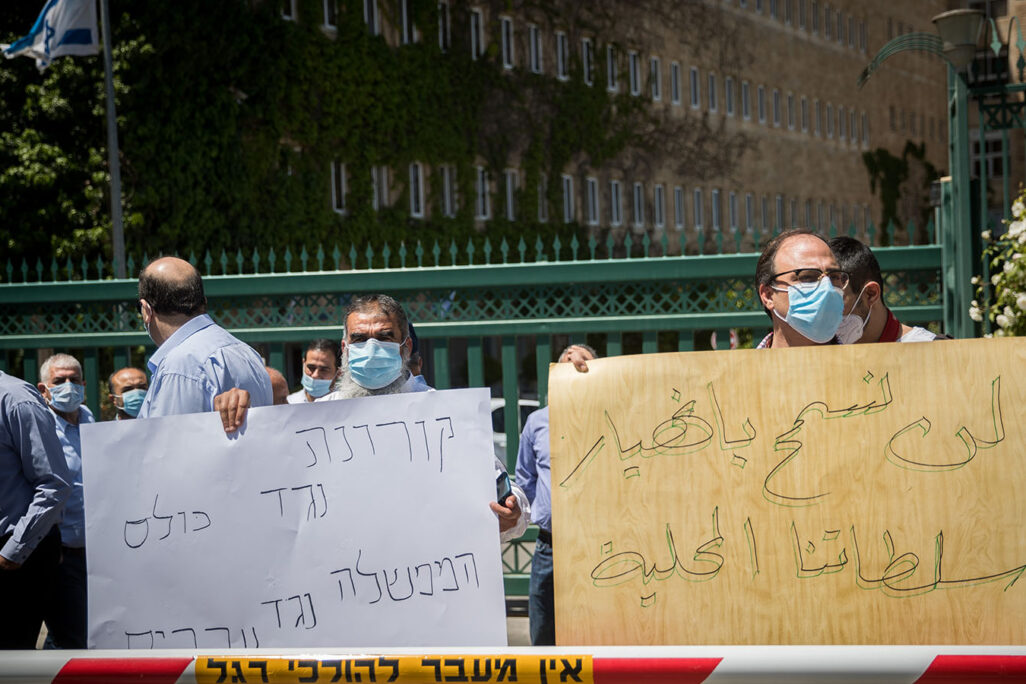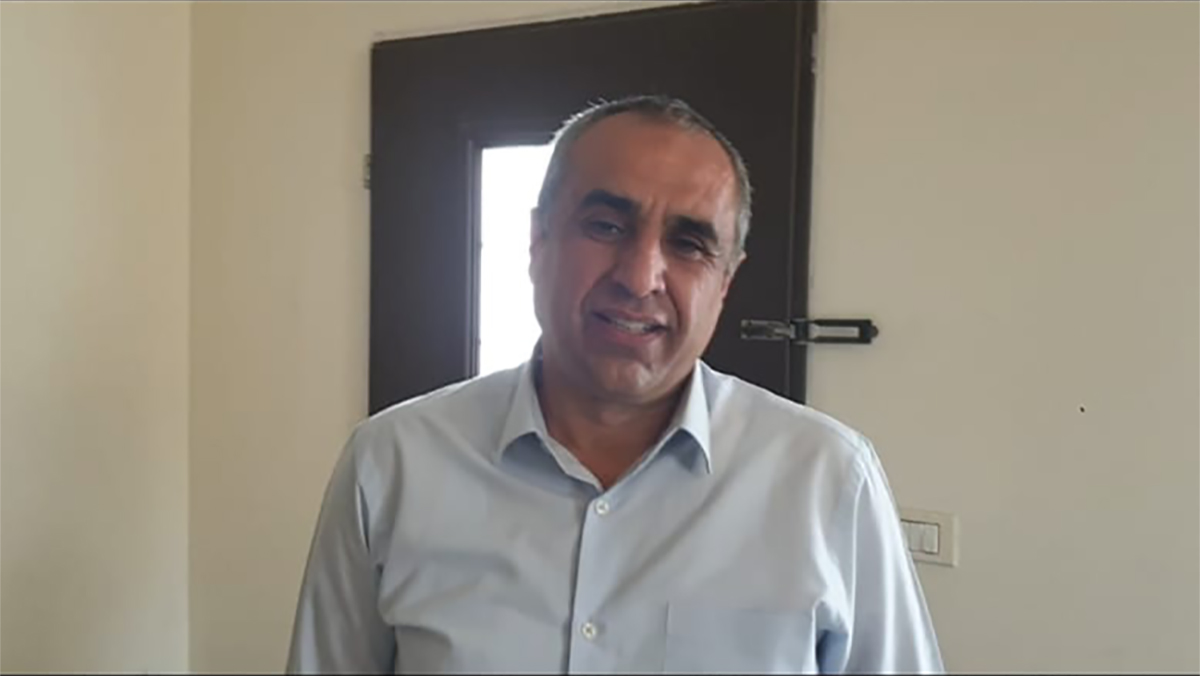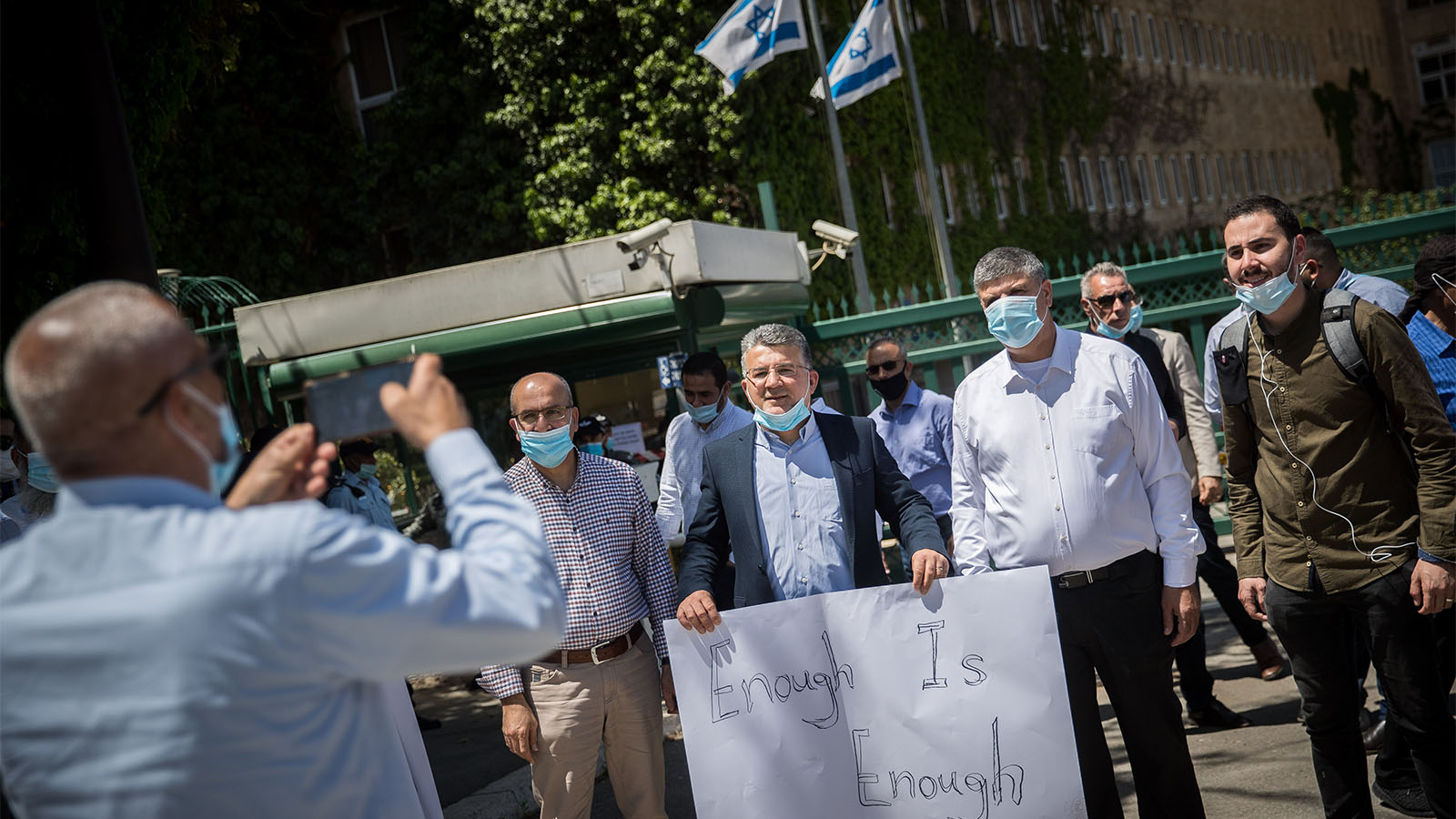
One week after Hebrew-run schools in Israel reopened, Arab schools finally agreed to open their gates on Sunday, May 10. The delay was the result of a number of turbulent factors, including a rise in the number of new COVID-19 cases among Arab population centers in Israel, as well as widespread strikes across the Arab education system, accusing the government of initiating an unfeasible back-to-school plan as well as discriminating against the Arab sector regarding the COVID-19 crisis.
The state’s plan to reopen Israel’s schools was met with great difficulty in Arab population centers due to different conditions on the ground compared to those typical of the Hebrew education system. Arab schools in Israel normally operate under more cramped conditions, with more students to a classroom, as well as smaller classrooms.
The price we have paid has been heavy
“The Education Ministry’s plan is unfeasible,” says Ahmed Jabarin, from Sahnin, head of the National Arab Parents’ Committee. “The classes in the Arab system have over 30 students in them, so this would mean we have to split into three groups with three teachers to a class." Since the current regulation dictates so called 'capsules' of no more then 15 students, it would mean finding triple the amount of classrooms than the usual.
"The same teachers are meant to facilitate distance learning for the students who have stayed at home. The ministry admits they don’t have any more teachers to send, so they’re proposing sending trainees. On top of all that, the teachers have to make sure that their students practice proper social distancing. Beyond the fact that the classrooms are too small, how are they meant to practice proper social distancing when they’re split into groups of 15 within the same class? It’s impossible.”
To make matters worse, Arab local municipalities, who are responsible for the functioning of the schools, went on strike on May 6, Wednesday of last week, in fear of imminent financial collapse – accusing the government of neglecting their communities.
“Out of the 2.8 billion shekels that the government has invested in local municipalities because of the COVID-19 crisis, Arab local municipalities have received only 2 percent of the total, despite making up 14.4 percent of the total population. The Treasury knows this and they aren’t doing a thing about it,” says Mudar Younes, chairman of the Committee of Arab Municipality Leaders. “We’re striking in 67 municipalities, and we’ll take this to the High Court over budgetary discrimination. We can barely provide basic services to our residents, and it’s only getting more difficult.”

Younes, also head of the municipal council of the Arab town of Ar'ara, described all Arab regional councils as facing a state of collapse, and he expects them soon to be unable to pay basic wages: “Garbage removal, pruning grass and hedges, preparing the schools. we couldn’t go back to school because COVID-19 cases are rising in our communities, and under these conditions we can’t get schools ready. The financial situation just keeps deteriorating. We can’t operate under such uncertain conditions when we’re at the peak of the coronavirus battle.”
Indeed, the reality on the ground in the vast majority of Arab population centers is not comparable to that of most Jewish population centers. Dr Sharaf Hassan, Chairman of the Arab Higher Monitoring Committee, says “According to Health Ministry numbers, the Arab sector is still experiencing rising COVID-19 cases. There’s a gap of about two weeks between Arab populations and Jewish populations with respect to the coronavirus. In Arab population centers, we are still behind the peak. This is a point that must be taken into account, and so we have decided not to renew the Arab education system in light of the policy’s indifference to the unique needs of the Arab population.”

This combination of factors has made the return to school a gargantuan task for the Arab education system. The decision to reopen Arab schools was made after an additional round of negotiations between the National Health Committee and the Arab Higher Monitoring Committee, following last week’s strike. Dr Hassan told Davar that “the decision was made according to Health Ministry recommendations. Last week they were not convinced whether there was a need for a staggered or simultaneous return to schools, and recommended we wait a week in order to avoid any surprises. Yesterday, in consultation, we reached the conclusion that COVID-19 numbers have stabilized, except for in a few ‘red areas’. in all other areas, school will return according to the Health and Education Ministry guidelines."
Dr Hassan added that “As for getting school ready, our surveys have shown that progress has been made. Regarding the strike, the Committee of Municipal Council Leaders has exempted school workers to allow them to prepare for the return to schools on the understanding that the price we have paid has been heavy. The distance learning system did not reach all of the students. That’s in addition to the psychological prices of staying at home for extended periods. There are also places which are not ready because the physical space is inadequate in terms of space per student and vacant classrooms. The Education Ministry must find solutions for these places. The municipal councils are not operational, and so there will be delays. School headmasters are required to be in touch and to ensure that the conditions being met. The Education Ministry is required to put up informational notices in Arabic, which up until now have been in Hebrew.”






